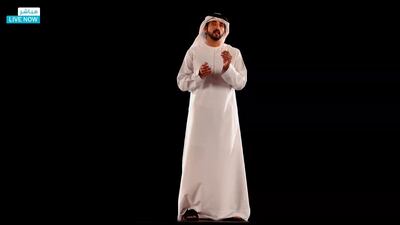
Sheikh Hamdan bin Mohammed delivers a statement via hologram at the World Government Summit. Screengrab
Sheikh Hamdan bin Mohammed delivers a statement via hologram at the World Government Summit. Screengrab
Sheikh Hamdan: Cutting commuting times will bring happiness and wealth
World Government Summit hears how city design will change the way we live

